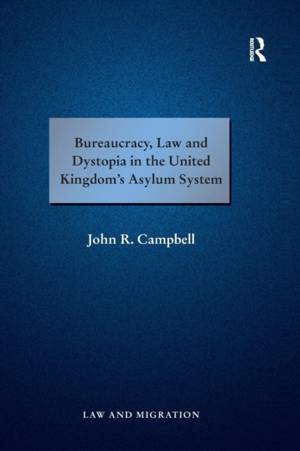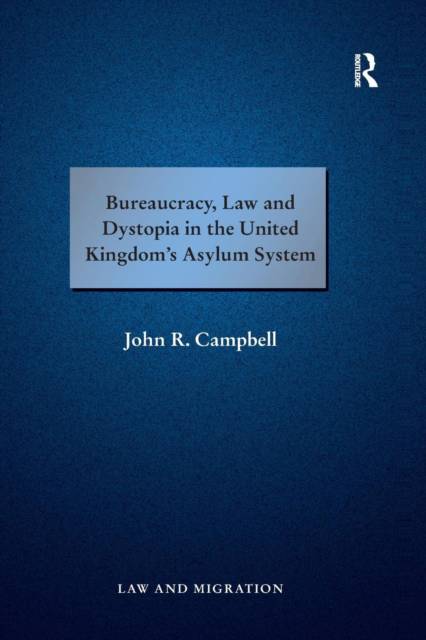
- Afhalen na 1 uur in een winkel met voorraad
- Gratis thuislevering in België
- Ruim aanbod met 7 miljoen producten
- Afhalen na 1 uur in een winkel met voorraad
- Gratis thuislevering in België
- Ruim aanbod met 7 miljoen producten
Bureaucracy, Law and Dystopia in the United Kingdom's Asylum System
John R CampbellOmschrijving
The central concern of this book is to find answers to fundamental questions about the British asylum system and how it operates. Based on ethnographic research over a two-year period, the work follows and analyses numerous asylum appeals through the British courts. It draws on myriad interviews with individuals and a thorough examination of many state and non-state organizations to understand how the system works. While the organization of the book reflects the formal asylum process, a focus on specific legal appeals reveals the 'political' factors at play as different institutions and actors seek to influence judicial decision-making and overturn/uphold official asylum policy. The final chapter draws on the author's ethnographic findings of the UK's 'asylum field' to re-examine research on the Refugee Determination System in the US, Canada and Australia which has narrowly focused on judicial decision-making. It argues that analysis of Refugee Determination Systems must be situated and studied as part of a wider, political, semi-autonomous 'asylum field' which needs to be better understood.
Providing an in-depth ethnographic study of a national asylum system and of immigration law and practice, the book will be an invaluable resource for academics, researchers and policy-makers in the UK and beyond working in this highly topical area.
Specificaties
Betrokkenen
- Auteur(s):
- Uitgeverij:
Inhoud
- Aantal bladzijden:
- 202
- Taal:
- Engels
- Reeks:
Eigenschappen
- Productcode (EAN):
- 9780367266370
- Verschijningsdatum:
- 21/03/2019
- Uitvoering:
- Paperback
- Formaat:
- Trade paperback (VS)
- Afmetingen:
- 156 mm x 234 mm
- Gewicht:
- 317 g

Alleen bij Standaard Boekhandel
Beoordelingen
We publiceren alleen reviews die voldoen aan de voorwaarden voor reviews. Bekijk onze voorwaarden voor reviews.












